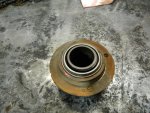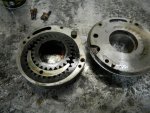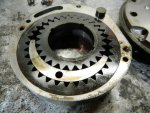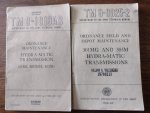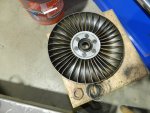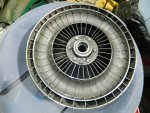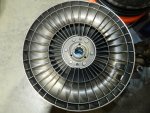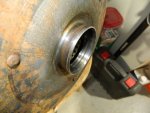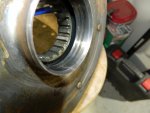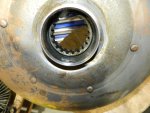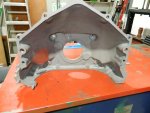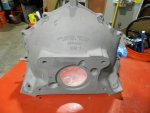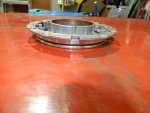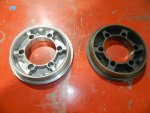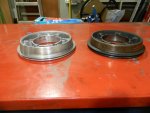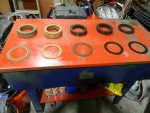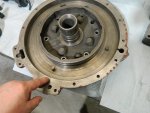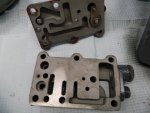Just a quick side note on the "fluid coupling" . This transmission does not have a "torque convertor" but a fluid coupling since it does not have a "stator" . That being said, there are several different styles or flavors of fluid couplings for the HydraMatic.
View attachment 925331 This one came off a V-8 engine and is built for "high stall" to help launch the vehicle.
View attachment 925332 This one came off an early 1950's "full size" car that needed "high torque" since it had a big but low revving engine. Torque baby !
View attachment 925333 This one is from our 303M unit. It is also built for torque, but it does not have the fancy internal ring later fluid couplings did.
I'm debating whether to use the 1950's model fluid coupling on this rebuild or stay with the stock unit.
The fluid coupling unit almost never fails, but sometimes the "fins" can come loose. So they do need to be checked.
The "housing" on the other hand can have severe wear on the input Hub. (I see I forgot to take pictures of that. I'll correct that tomorrow.) The HydraMatic has a rubber seal for the "outside" of the hub and also a sealing ring on the "inside" of the hub. Both need to be checked.
If your hub has severe wear your only options are find another "housing" or have a machine shop make a new "hub" and weld it on. A ""speedy sleave" will not work on the inside of the "hub" .
I have debated with myself whether a machine could turn the "hub" down just .020" and fit a stainless steel sleave on the outside and on the inside of the "hub" . This hub is very thin though. I have one housing that has severe wear on the "hub" so maybe I'll take it to the shop and see what he can do.



